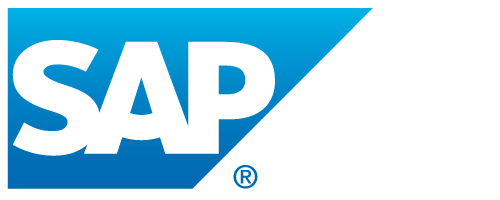Just what is sustainability?
A rough definition suggests it’s all about balance: in particular the achieving a balance between growth, environment and social wellbeing.
At SAP we’ve refined this idea a little further, particularly as it relates directly to people and sustainability, so that our definition is: ‘the focus on treating people – within the workforce, across supply chains and in the wider communities in which you operate – ethically and fairly.’
This is more than just a passing trend or a fad.
According McKinsey 34% of global investment is now in sustainable businesses. Furthermore, 55% of employees would choose to work for a responsible employer – even if that meant a pay cut.
Finally, 40% of millennials have decided to choose a job because of the sustainability objectives of their new employer.
So sustainability is increasingly vital to both attract investment, and to the recruitment and retention of talent. But it goes further than that.
Sustainability is also about creating businesses which are not only fair and equitable as employers, but, by their very nature, have the strengths which sustainability gives them to develop and grow profitably.
It means creating a business model and culture which can thrive and continue to grow whatever challenges it might face in the future. This is because they are built on principals that are enduring and capable of flexing to meet those challenges.
Balance in this instance equals success.
The six pillars of sustainability
So just how do you go about creating a business which puts people, and their fair and ethical treatment, at its heart? At SAP we believe there are six fundamental pillars upon which the firm foundation of people sustainability is based.
They include:
- Wellbeing and balance
This is not just in terms of creating a culture where the health of employees, both mental and physical, is seen as vitally important. Balance is also about a far wider range of issues both inside and outside the organisation.
Things like financial wellbeing, and ensuring that employees have access to the support and tools they need to thrive without, as far as possible, the concerns and worries that are most likely to hold them back.
- Trust and transparency
This is about openness in all areas, from open and honest pay and reward structures, to fairness and openness in the way all the business’s systems operate.
Trust takes time to build, but can very quickly be destroyed. Take the use of employee data. There is a very fine line between using data to enable your employees to thrive, and ‘monitoring’ their every activity. Cross that line and trust can be very quickly lost.
- Empowerment and growth
We’ve talked before in this series about the importance of autonomy.
At its simplest, it’s about empowering employees, making available the tools, and the culture, which lets them take greater responsibility for grow and develop their own careers.
Yes you need the tools to allow this to happen, but by trusting your employees you not only open up opportunities for them, but allow them to grow their own stake in the future of the business.
- Sustainable engagement
It’s all about engagement, and that means encouraging employees to share the company’s journey towards making a positive impact on the environment. It’s essential that this is a central part of your mission.
Rest assured that if it isn’t you’ll be very quickly found out. But if it is, it’s also, once again, about empowering your talent, and enabling them to share their skills, even with others on projects outside work.
- Health and safety
Everyone wants to be able to work in a safe and healthy environment, but it’s not about the office space itself, but all areas where the world of work and wellbeing meet.
In this case, health and wellbeing isn’t just an internal matter, but all about the impact your business has on everyone’s health and safety.
- Diversity, Equality and Inclusion
Easy to talk about, but far harder to really deliver. Yes, it’s about having a culture which drives a sense of belonging for each and every employee, but just how do you ensure that this actually happens?
Hidden agendas, unintentional bias which is all the more damaging if it goes unrecognised, fairly opening opportunities for everyone regardless: all these thing scan mitigate against your ability to truly operate in a sustainable way.
Once again, technology can help, but only if that technology itself is capable of delivering DEI in the most open and honest way.
People and sustainability – the winning combination
These then are the pillars upon which true people sustainability is built and delivered. Yes, this takes investment, not least in the kinds of technology which transforms these pillars from ideals into actions.
But that technology exists right now. What’s really needed – and HR is at the true centre of this – is the commitment to building truly sustainable organisations, which really can deliver on the promises.
That also means being able to develop the metrics which enable you to measure and assess your sustainability strategy: what’s working well and what do we need to address to improve?
Above all, sustainability is about the survival of businesses in the longer term; about having the flexibility and adaptability to continue to grow without damaging the environment and the very things upon which that sustainability is founded.
At the core of that goal are people. They have the talent, the commitment and ability to deliver great things. All you need to do is channel that in the right way, and together you really can deliver growth which is both profitable and fully sustainable.
Melek Geveci is global HXM value advisor at SAP
To find out more about people sustainability and how SAP can help your business build a more ethical and fair people culture click here now.


